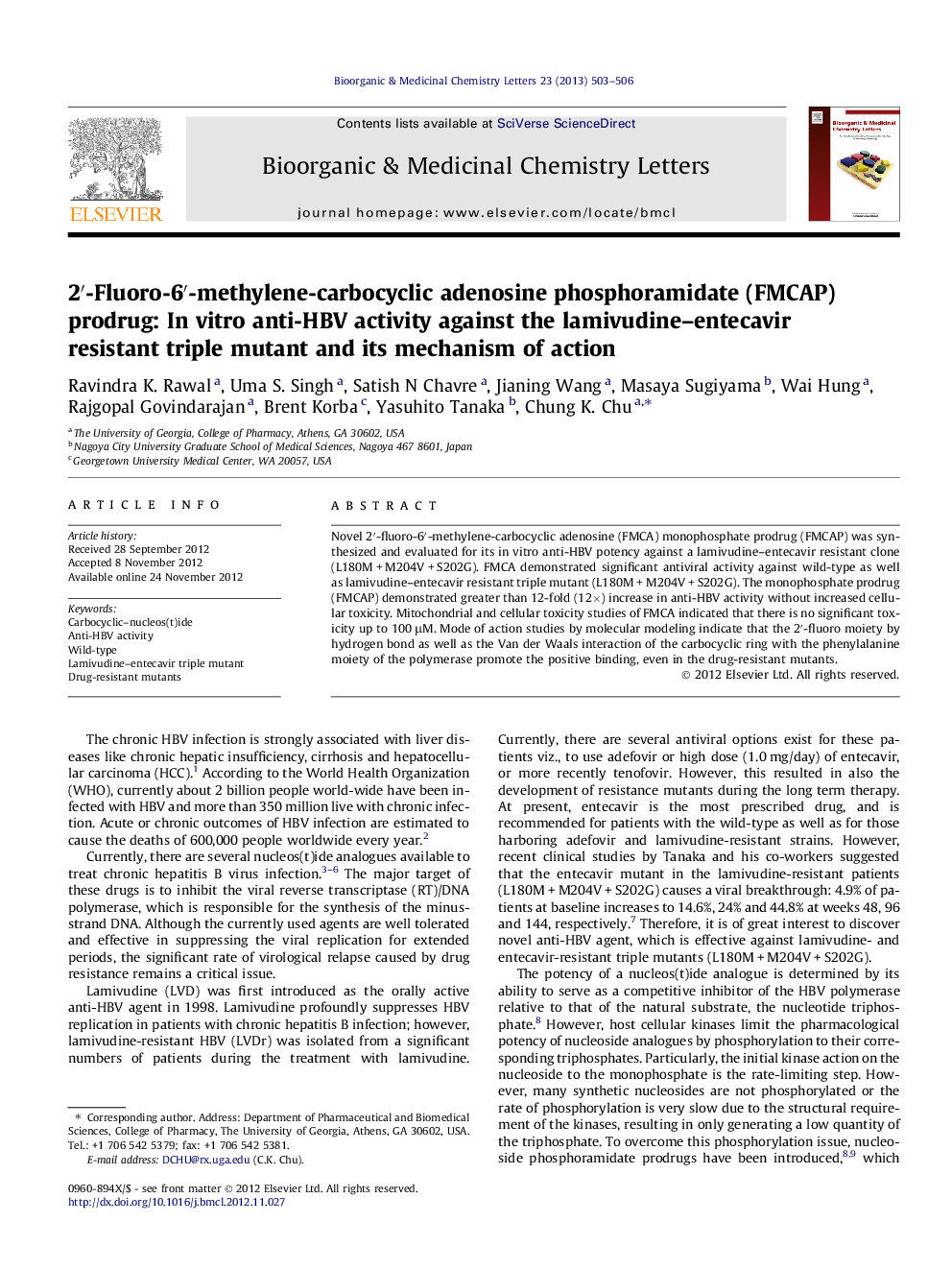| Article ID | Journal | Published Year | Pages | File Type |
|---|---|---|---|---|
| 10596055 | Bioorganic & Medicinal Chemistry Letters | 2013 | 4 Pages |
Abstract
Novel 2â²-fluoro-6â²-methylene-carbocyclic adenosine (FMCA) monophosphate prodrug (FMCAP) was synthesized and evaluated for its in vitro anti-HBV potency against a lamivudine-entecavir resistant clone (L180M + M204V + S202G). FMCA demonstrated significant antiviral activity against wild-type as well as lamivudine-entecavir resistant triple mutant (L180M + M204V + S202G). The monophosphate prodrug (FMCAP) demonstrated greater than 12-fold (12Ã) increase in anti-HBV activity without increased cellular toxicity. Mitochondrial and cellular toxicity studies of FMCA indicated that there is no significant toxicity up to 100 μM. Mode of action studies by molecular modeling indicate that the 2â²-fluoro moiety by hydrogen bond as well as the Van der Waals interaction of the carbocyclic ring with the phenylalanine moiety of the polymerase promote the positive binding, even in the drug-resistant mutants.
Related Topics
Physical Sciences and Engineering
Chemistry
Organic Chemistry
Authors
Ravindra K. Rawal, Uma S. Singh, Satish N Chavre, Jianing Wang, Masaya Sugiyama, Wai Hung, Rajgopal Govindarajan, Brent Korba, Yasuhito Tanaka, Chung K. Chu,
